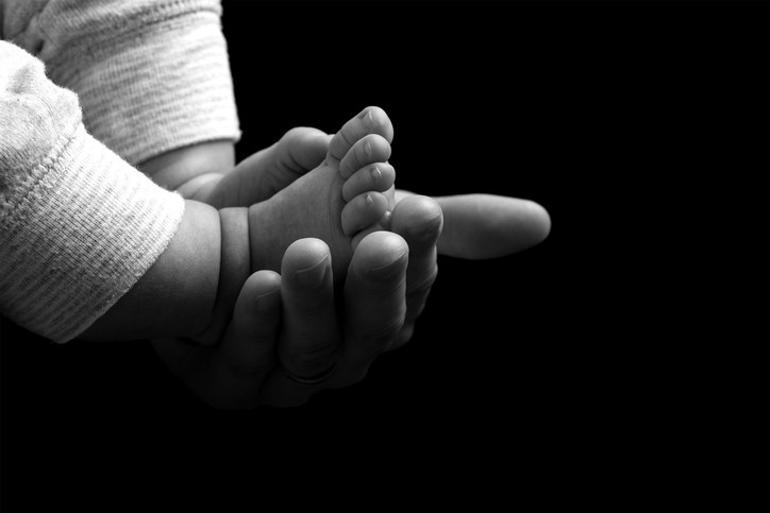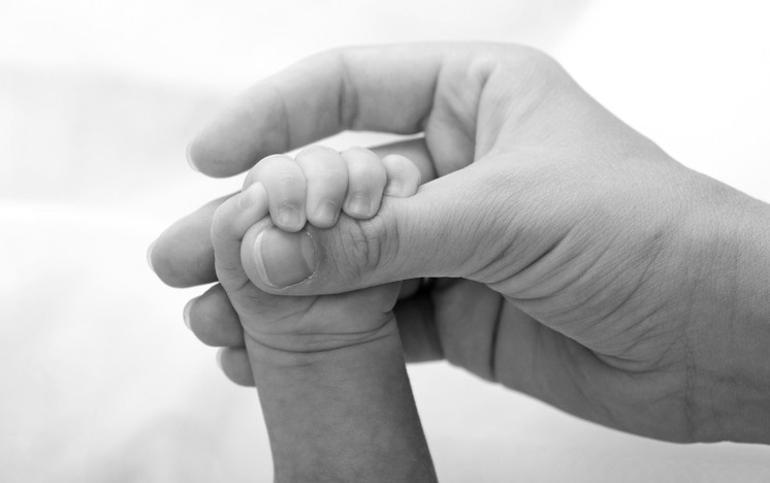It was said he was abandoned the day after his birth. 37 years later, he is haunted by his past... Did the adoption fall into the hands of scammers?

Aaron Grzegorczyk was born on April 28, 1988 , at a clinic in Anyang, South Korea, about 11 miles south of Seoul. He was told that his mother, a single 19-year-old woman, abandoned him the day after giving birth. He believed this for years, but a recent investigation led him to wonder if he, too, had been a victim of adoption fraud. From that day on, he began to question his past.

A VICTIM OF A 50-YEAR-OLD ADOPTION SCAM?
Less than five months after his birth, Aaron Grzegorczyk was placed for adoption by Polish-American parents in Bay City, Michigan. He was the first child born to this family. His birth mother, as her adoption papers stated, had given him up to "have the best possible future."
Grzegorczyk had never questioned the story until last March, when a friend sent her an article detailing the South Korean government's admission of five decades of adoption fraud .
"I was speechless when I read the news. I had absolutely no idea about any of this," Grzegorczyk told the Washington Post. After reading the news, she immediately began researching his past.
South Korean adoptee Rebecca Kimmel compared the facial features in photos taken after her adoption with those of another girl on her ID in her adoption file in February 2024 at her home in Seattle, suspecting that the adoption agency had replaced her identity with that of another girl.
FAKE BIRTH NAMES AND STORIES WERE WRITTEN
Earlier this year, an independent commission of inquiry appointed by the South Korean government released a report acknowledging for the first time that the country has allowed human rights abuses to take place in what it criticises as a decades-long "profit-driven adoption industry" .
A review of dozens of cases between 1964 and 1999 revealed that some children were taken from their biological parents without their consent, while others were given false birth names and fake histories before being sent abroad for high adoption fees .
Some were sent without legally valid documentation or with little or no vetting of the prospective adoptive family, and agencies often rushed to fulfill orders or quotas in what the report called “mass expulsions of children to meet demand.”
“The long-standing practice of intercountry adoption represents the government’s failure to fulfill its responsibility to protect the fundamental human rights of its citizens,” said the Truth and Reconciliation Commission (TRC) , an independent government agency established to investigate and publicize the country’s past human rights violations.

PARENTS WERE TOLD THEIR CHILDREN WERE DIED AT BIRTH
The TRC's conclusions are based on a partial review of 367 cases submitted by adoptees in 11 countries .
It is unclear how many of the more than 200,000 Korean children estimated to have been adopted internationally since the end of the Korean War were sent abroad under illegal pretexts, but experts say poor practices by adoption agencies are widespread.
In some cases, birth parents were lied to and told that their children died shortly after birth.
"We haven't seen a single case where there were no problems," said Boon Young Han, one of the Danish adoptees who banded together as the Danish Korean Rights Group and successfully campaigned for the South Korean government to launch an investigation. The organization, which Boon Young Han founded, has meticulously investigated numerous cases.
'THAT WAS THE FIRST EMOTIONAL PROBLEM I FACED IN MY LIFE'
For Grzegorczyk, the latest news has called her entire life into question. She was just 10 years old when her adoptive mother told her that her biological mother had abandoned her. Now, she describes that moment as her "first existential crisis," saying, "It was the first mental and emotional challenge I've ever faced in my life."
When Grzegorczyk was born, South Korea had just emerged from widespread post-war poverty and was in the throes of a years-long struggle for democratization.
Grzegorczyk said he grew up feeling like an outsider in a predominantly white society and began experiencing behavioral problems in his early teens.
He studied graphic design in 2006 but dropped out during the 2008 financial crisis, fearing his degree would be useless. He then worked for years as an emergency medical technician. This work strained him so much that he was eventually diagnosed with post-traumatic stress disorder. Grzegorczyk began to struggle with substance abuse. He left his career, which paid him close to minimum wage, to sell drugs, which led to several prison sentences.
When he learned that he was expecting a child in 2019, he wanted to change his life and started working as a roofer.
“I’ve finally gotten to a place where I can’t call myself happy, but I’m mostly at peace, ” Grzegorczyk said , her smile giving way to tears until she heard all this recently.
Activists and adoptees have for years criticized adoption agencies in South Korea for being slow or uncooperative in sharing adoption records.
Many adoptees who spoke to The Washington Post said they had been searching for their full records for years, stumbling through the bureaucracy of working with adoption agencies in South Korea and filing Freedom of Information Act requests in their home countries.
“The documents are not just a piece of paper. They are our only clue, our only opportunity to trace our true identity,” Boon Young Han said. South Korea recently ordered all adoption agencies to turn over their files to a government agency called the National Center for Children’s Rights starting in July.
Han said the change could standardize family searches for adoptees, but he also fears some documents could be lost during the transfer. Meanwhile, politicians are debating whether to investigate more adoptions.

THERE IS NO POLICE REPORT OF ABANDONMENT
In Grzegorczyk's case, the documents his adoptive mother kept for him raise some questions: For example , there is no police report in the file alleging Grzegorczyk's abandonment or a relinquishment consent form signed by his biological parent.
Neither the name nor the address of the clinic where he was allegedly abandoned as a newborn are listed in the documents , and many fields on the forms are left blank. His family origin is listed only as "Hanyang," a general term for Seoul.
Hope for reunion
An employee at the adoption agency told Grzegorczyk she had spoken to her alleged biological mother by phone. The employee said the woman was "happy" to be in touch with Grzegorczyk and had been waiting for this for a long time.
The employee asked Grzegorczyk to write a letter introducing herself, which the agency confirmed was translated and sent within a few days. In the letter, Grzegorczyk spoke fondly of her 5-year-old daughter, Isla, her brother and sister, a Korean adoptee , and her young nephews.
"I never tried to call you because I thought you didn't want to be found. I have so many questions I want to tell you and ask you. But I don't want to overwhelm you. I'm so happy to hear you want to talk to me," she wrote in her letter.
But Grzegorczyk hasn't heard from her mother since. An adoption agency employee told her her case would be transferred to the state agency that handles adoptive records in July, and she said her mother didn't respond to a second phone call.
He asked the employee to give his mother his contact information. Driving back from Detroit at midnight in mid-May, he tried to mask his disappointment in a video message with jokes and a smile.
"I never planned on hearing anything from anyone in my life. Maybe my paperwork wasn't fabricated," he added.
hurriyet





